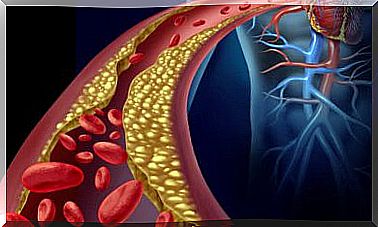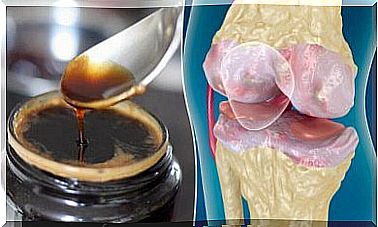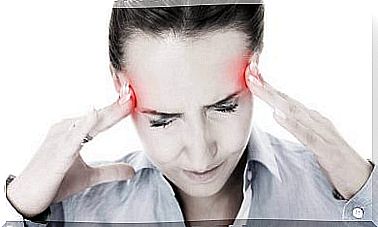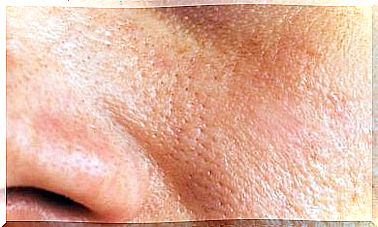Habits Of People With Masked Depression
The importance of treating masked depression is to be able to avoid major problems. If not caught early enough, the results are usually tragic.
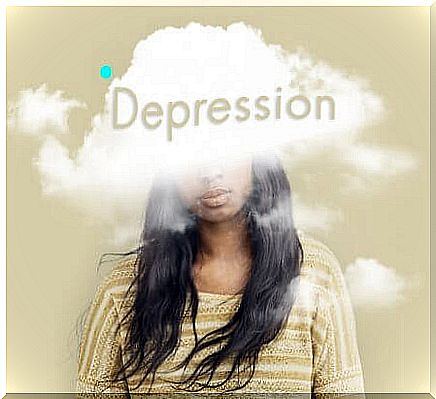
Outgoing and sociable, but depressed? People with masked depression have certain habits. Detecting these habits is important to overcome this pathology.
Masked depression, a major problem

Although people with depression are easily detected, covert depression is a major problem. Those who suffer from it try to hide their suffering, which increases the risk. Symptoms appear unexpectedly, usually when it is too late to help.
The underlying problem inside is usually ignored, especially by the person suffering from it. Suicide can appear at any time, without understanding what happened. No one detected the signs and the victim never spoke of them.
A person with masked depression tries to be optimistic. She listens to music, walks or exercises. The fear of rejection leads them to hide their feelings. Even an arm injury can be masked to avoid drawing attention.
Contrary to popular belief, outgoing and jovial people take longer to overcome depression than introverts. For a long time, it was thought that a cheerful and very sociable person could hardly enter into a depressive episode. Reality has proven otherwise.
Why hide it?
Shame or fear of losing friends or losing your job may be enough of a reason to develop a depressive episode. Joviality helps in the eagerness to hide it. Therefore, one should be attentive to these hidden habits of depressed people, in order to help them overcome them.
Habits of people with masked depression

Manifestations of joy and cordiality may be accompanied by memories of the past. These may be unhealed episodes that appear periodically, although the person does not speak sadly about them.
If that friend or relative is talking about anxiety and exhaustion, you should be careful. It is important to keep these details in mind, and more so if it is not your habit.
Diet changes
Changes in the diet can indicate a condition. Although eating disorders and depression are different illnesses, they can be related.
It may happen that these changes occur simultaneously or that one of the disorders leads to the other. If there are any changes in this person’s appetite, this should be taken into consideration. It is necessary to talk to the patient, make him feel that he is not alone and invite him to seek help.
Mood
When depression is masked, the lack of enthusiasm for things that once aroused pleasure and passion can be betraying. This can represent a serious problem.
The first step in treatment is not to talk to the person. Even if you don’t want to recognize it, this can be the starting point to start the required treatment.
Sadness
Often, those who are depressed neglect their appearance, are sad and withdraw. On the contrary, people with masked depression can be very dressed.
Permanent fatigue
When depression is masked, an obvious symptom may be permanent fatigue with no specific cause. The people concerned then attribute this fatigue to weakness, laziness or the accumulation of work, but we can also quite see a depressive episode.
Anger
Expressions of irritability and anger often represent symptoms of masked depression. It’s not just about apathy, melancholy, hopelessness, crying and sadness, which is not so evident in extroverted people.
This irritability is in many cases due to the fact that these people must continue to assume their responsibilities despite their fatigue . This is often mistaken for stress, but in reality it can be a clear manifestation of hidden depression.
Lack of sleep
Discomfort during sleep or insomnia, night sweats with no apparent cause, indicates that something is wrong. It is a manifestation of anxiety. Mentioning these situations carefully in the conversation can help uncover the underlying issues.
At some point, people will open up. This is why it is not good for them to live alone with depression. When they do decide to speak up, listening to them can be the difference between life and death. It is then that bridges of proximity and trust are created. We cannot forget that people with masked depression need love and acceptance.
If we can detect these hidden habits of people with depression, we can offer them the help they need. It is certainly a challenge, but it will be worth it if it comes to saving the life of a loved one.

